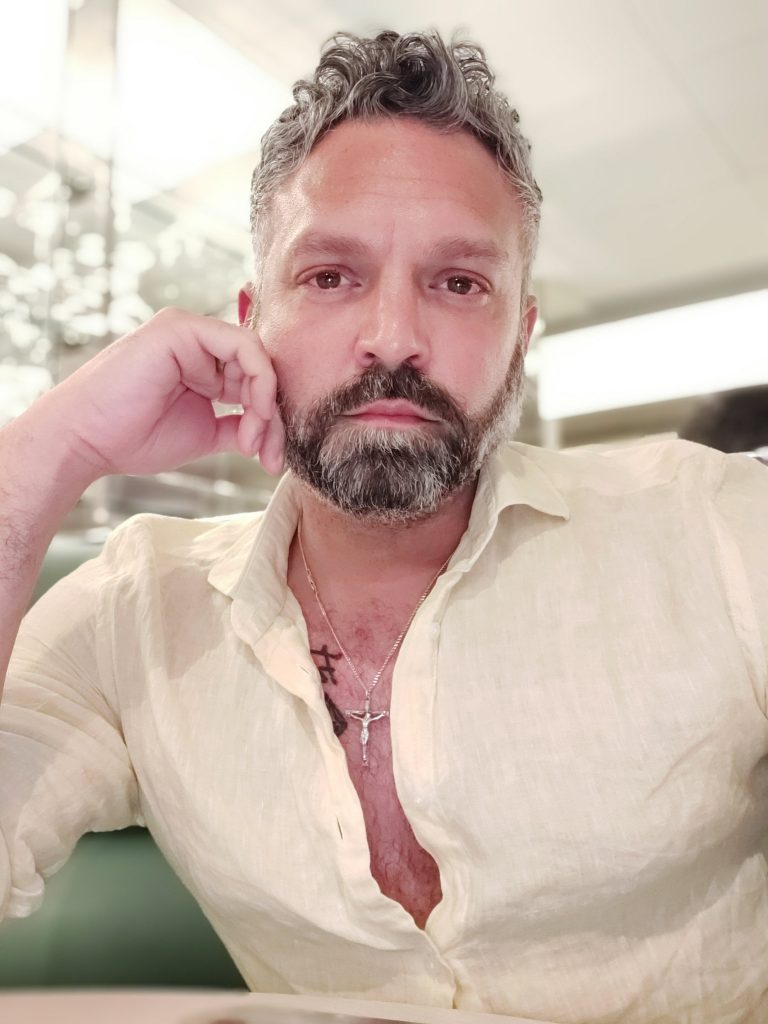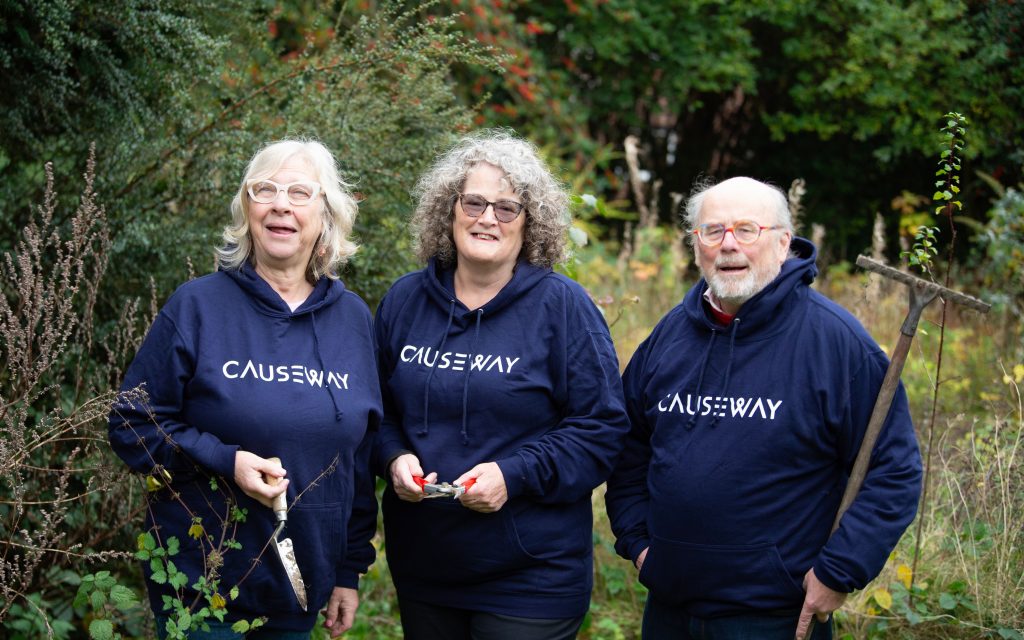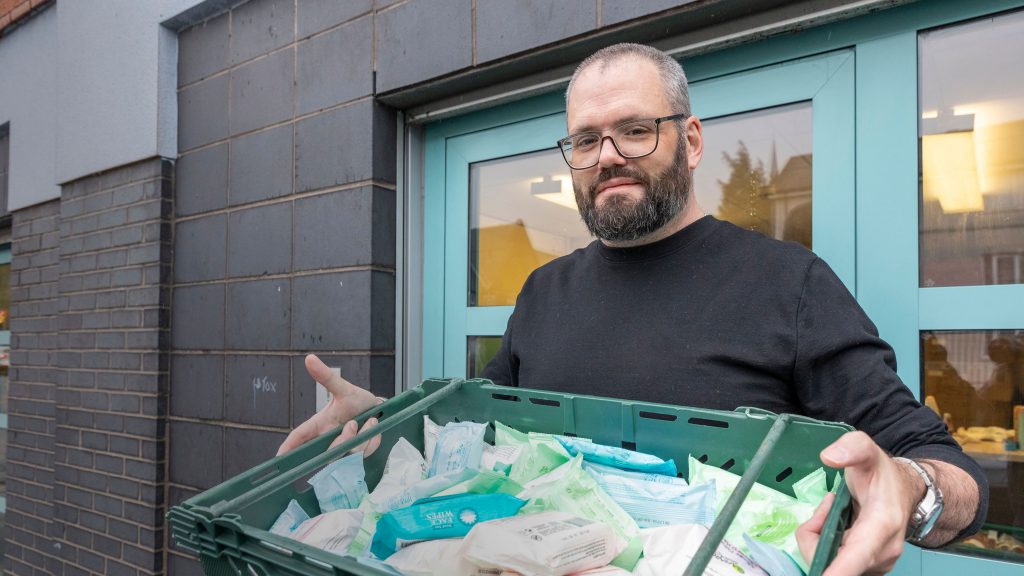Married at First Sight UK star Matt Jameson has joined forces with modern slavery charity Causeway to shine a light on the 100,000 known individuals currently trapped in modern slavery and exploitation in the UK. Matt made TV history as part of the first same-sex couple to marry on the E4 reality show but has since made his mark by advocating for LGBTQ+ rights in his involvement in charity work. We got in touch to find out a little more about these fantastic causes, as well as discuss the importance of LGBT+ History Month.

What inspired you to align yourself with causeway?
It’s such a prominent issue, specifically within the LGBTQ+ community. As you know, in 64 countries there is still criminalisation around being gay which is a key factor in a lot of men (in particular) being drawn in and manipulated into modern-day slavery. The first thought you often go to when discussing modern-day slavery is young women being brought in from different countries for sex trading, but it is mostly men. It’s the intimidation, manipulation, and those different avenues that are used to manipulate men into modern day slavery, particularly if they’re LGBTQ+ and coming from countries where they are persecuted for their sexuality. That is used as a weapon of control. Whilst 88% of victims of sexual exploitation is women, the number of male victims has tripled in recent years, so it’s just really horrible. 100,00 people in the UK are said to be victims of modern-day slavery which is an absolutely shocking amount of people when considering we’re such a forward-thinking country… well I’d like to think were a forward-thinking country, but obviously there’s lots of stuff going on within the government at the moment but that’s another story.
Tell us about Out Together
Out Together is another organisation I’m a part of, and we support the older LGBTQ+ community and those from it who are battling social isolation and loneliness. That is a key issue that effects the older community, mainly because of the persecution that happened prior. A lot of our members are in their 80’s and 90’s and have been in a relationship for a long time, and then if their partner dies, they may not have an immediate network like family and friends, so they become so lonely and vulnerable and isolated. As an organisation, that’s where we step in and we create lots of social activities to connect people.

Do you have an experience that you’ve encountered during your involvement with causeway that has left a lasting impact on your perspective of the issue?
I have come into contact with a number of people that have had to flee their country because of their sexuality and because of the persecution around that. Listening to their stories and how it’s impacted them and how they’re having to rebuild their lives is just so harrowing. Their community, their family, their friends have just rejected them. There’s so much in the news about immigration and the government trying to send people to other countries when they’re trying to find refuge here in the UK, which is why it’s so important for me to be able to shout about it when it comes to the LGBTQ+ community and raising awareness because there are so many people that don’t understand the persecution. We live in such an open society here in the UK so I think if you’re not part of the LGBTQ+ community or connected in some way you may be too far removed to really appreciate the prejudice and the persecution that goes on outside of the UK. There’s still homophobia in the UK and unfortunately, I’ve come across it and other people that I know have come across it but to actually think about living in a country where you are completely persecuted because of your sexuality to the point where you could be manipulated, blackmailed, and coerced into modern day slavery just to escape that persecution is awful. We need to educate and shout about it and really highlight the work that causeway does in supporting those people when they come to the UK. Another surprising thing is that the second most prominent nationality of modern slavery victims in the UK are actually British people, so homelessness as well can be a key factor which makes some people vulnerable to trafficking. The number of LGBTQ+ homeless youth here in the UK is huge because they are shunned by their own family and friends after coming out, and they don’t have anywhere else to go and then they’re taken advantage of. If you’re homeless you become very vulnerable and prone to exploitation because you need somewhere to stay, you need some food, you want to get back on your feet and then you’re targeted and before you know it, you’re in an even worse situation.

What makes LGBT+ History Month important to you?
History month is so important to me because it’s an opportunity to look back and celebrate the incredible work that the generations before us have done in battling to ensure that we have the rights that we do today. It’s so important that we remember all that trail blazing work that the generation before us did and bridge that generational gap as well. I think when we celebrated the 50 years since the law changed, it was very predominant within the news and media, but we need to remember it every year. As well as this, we need to remember that there are countries today that are nowhere near where we are in terms of progress, and it is still illegal which is why the persecution is happening to these members of the LGBTQ+ community, pushing them into modern-day slavery.
All Images Courtesy of Causeway

